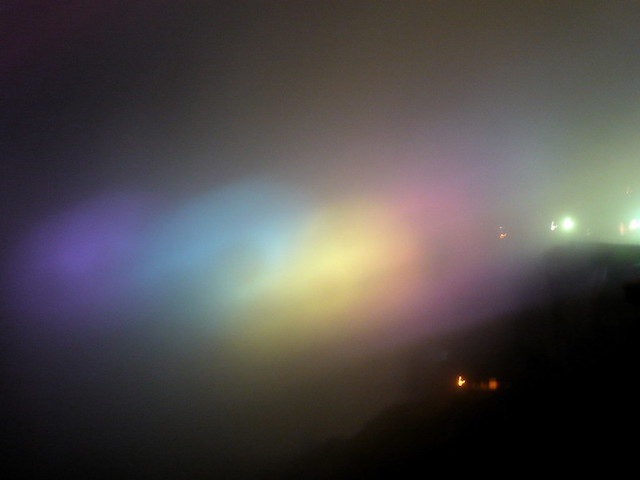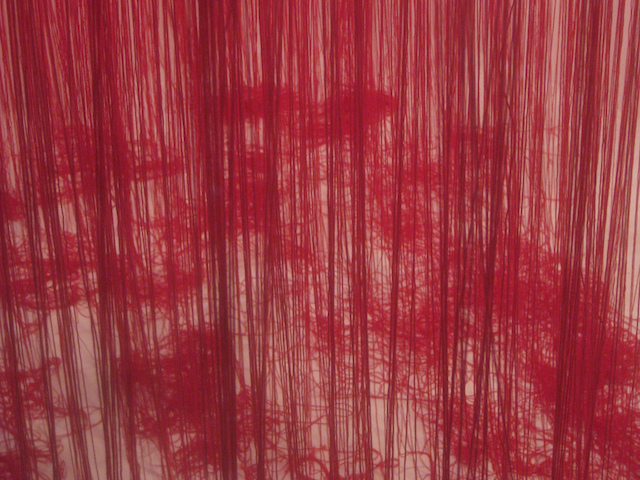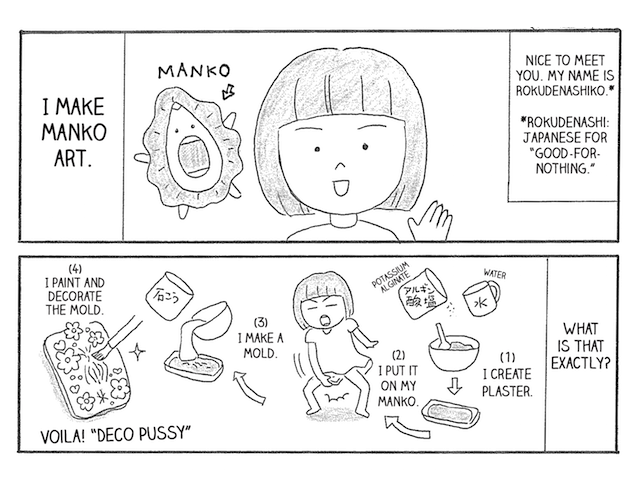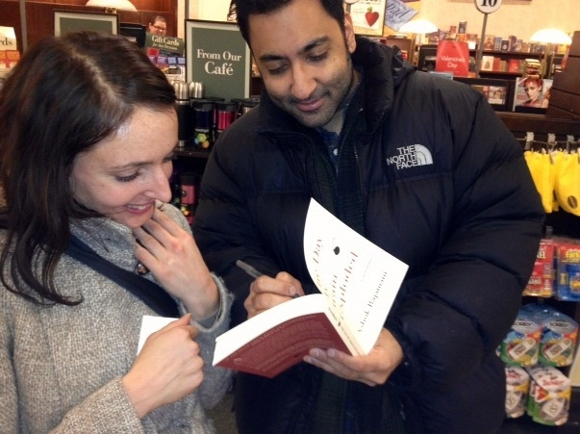Mom and I would share toast, shedding crumbs all over the bed while I asked her other questions, like if it was possible to move things with your eyes, what the word “fuck” meant, if angels existed or if she could tell me the story about when she and Dad got me from Nanchang.

When I was around four or five years old, Mom signed me up for a Chinese language and cultural immersion course. I’m adopted, and she wanted me to stay in touch with my roots. I remember copying down countless Chinese characters, focusing more on their shape than what they actually meant. I remember flopping around like I was injured in Traditional Dance, how my arms were too weak to hold up the long red silk ribbons. And I remember the teacher, Miss Fei, a woman of about sixty, who colored her lipstick outside the lines and who sounded angry even though she was just telling me that I wasn’t lifting my leg high enough or that I was on the wrong side of the stage.
The class was held in Chelsea. Mom picked me up for the final time on a Tuesday, after I started coming home in tears. She stayed behind in the hallway of the building after the other parents left. I don’t remember what she said to Miss Fei; I just remember hiding behind Mom’s legs the entire time, and that I was never expected to go back. I was better in drawing class, with Lucia and her husband Diego, a couple that held classes in their small apartment in the West Village. Their home smelled like wet clay and pretzels and all of the tables were covered with dried acrylic paint.
Around that time, until I was about fourteen, Dad used to take me and my sister and my mom to his parents’ house for the holidays. Their house was large and old, a mansion that had a primary color scheme. There was a Lichtenstein painting hanging over the fireplace in the living room and another one upstairs, of a woman in sunglasses with enormous red nipples. The house smelled like baby powder. Sometimes like smoked fish. We never visited when there wasn’t a party, so I only remember the house as being too full of people.
My cousins on that side of the family were much older than me, and I didn’t know how to talk to them. At my uncle’s wedding in Niagara Falls, I asked the bartender for a martini glass filled with water. I was eight or nine years old at the time and had read about an “Aqueous Martini” in a children’s book series I was reading, and I wanted to try it. My cousins thought that was funny. They told me to pose with it and one of them gave me her driver’s license to hold up, and after they took pictures, they urged me to go around the wedding party and tell all of the adults that I was drunk. I was old enough then to understand this joke and why it was funny, even if I didn’t think it was.
My parents called me “sweet pea” and “beauty queen” and “wild thing.” I was all of those things when we were alone together, but I didn’t feel like any of those things around other people, like the people Mom and Dad talked to at dinners or parties, who wanted so badly for me to like them when it was still too early for me to consciously bestow liking onto someone. If an adult tried to talk to me when my parents weren’t with me, I would cry, or I would bark at them, or I would crawl under the table or run behind Dad’s legs. I hated sitting stiff for hours on Mom’s lap at huge tables with people who were supposedly my family but whom I didn’t actually know very well. At the end of one of those dinners at Dad’s family’s house, Great Aunt Marie told my mom that I was a “simply beautiful Chinese baby” and that she and her husband had always wanted to go to China and find such a beautiful Chinese baby for themselves. After that, Mom was tight-lipped and angry and wouldn’t talk to Dad the whole car ride home. I remember them having a fight in the kitchen while I drew on the Etch-a-Sketch in the living room, pictures of faces with glasses on them, mugs, cats, chandeliers, things I saw over at Dad’s family’s house that night. I didn’t really understand what they were saying when they argued, and if I did, I don’t think I would’ve felt strongly either way.
I liked Hawaii more, where Mom’s side of the family lived. Grandma and grandpa had an apartment in Honolulu, which was tiny and had wall-to-wall carpeting and two fans as air conditioning. I liked the locals’ tan skin and their long dark hair. They looked nothing like most of the kids I went to school with. When I was young, I didn’t care about the difference between Hawaiian and Chinese; I was just happy to be there, with people who looked like me. I had never seen so much beauty in my entire life.
My cousins and I would play for hours in that apartment and eat Cheetos and watch Lilo & Stitch on the small television in grandma’s room, while the adults sat in the kitchen, drinking beers and iced teas without coasters. They’d break into song together, or talk about Aunt Rosie’s wooden leg, or the time Beth got hit by the car. During the day, Uncle Bobby would take my cousins and me in his car, which had broken air conditioning and sand in between the car seats. He’d drive us to the beach or to the movies or to the aquarium, and I would spend hours staring at the fish and dolphins and eel, wanting to live there in the tank with them. I wondered what it might be like to be able to breathe underwater.
School was hard when it first started. Alex had light hair and his legs were skinny and he was always sweaty. I didn’t understand why others teased and whispered to him and acted like my love for him was a secret, because it was true and it wasn’t a secret; I told him I loved him every day. I had been and continued to be a late bloomer, only instead of breasts and acne and periods, it was shame and reserve and embarrassment that were slow to develop. When Alex told me I had a mustache, I hit him in the mouth and almost made him swallow one of his loose teeth. The girl he did like was freckled and her skin looked like yogurt. When she sat in front of me in class, I cut bits of her hair off with the scissors meant for making collages of our family trees. At home, I went into the bathroom and locked the door and plucked out the fine dark hairs above my upper lip with my stubby fingernails. I was in there for a long time and Dad finally threatened to call the police or the super if I kept refusing to open the door. Sometimes when I’d come home, I’d hide in Dad’s suitcase, because I liked hearing my parents panic and call for me, and I liked having the power to make all that go away.
Barbara Ann was a mother at school who threw parties for Chinese New Year and who also looked nothing like me. My parents would take me every February to her high-ceiling Soho apartment where kids drank egg-drop soup and cracked fortune cookies bought from Food Emporium. Rose was my best friend, and she and I would sit under the table and read each other our lucky numbers while kids dropped chopsticks or stuck them up their noses. They’d run around in rooms they weren’t supposed to run around in and pull each other’s hair–Jasons and Jacobs and Jareds and Adams and Andrews and Emilys and Lauras and Sophias and Olivias and Maddies and Hannahs and Annas. At the end of the party, a huge dancing paper dragon with badly glued-on googly eyes would come out from Barbara Ann’s kitchen, puppeted by one of the waitstaff. On the car ride home, Mom and Dad would ask if I had fun, and every time I’d say that I did, without knowing if what I felt at the party was what fun was supposed to feel like.
When teachers started assigning homework, I wouldn’t do it. I’d watch movies instead, like Lady and the Tramp and Alice in Wonderland and Oliver and Company, because they all had animals in them. I’d memorize lines that they said, lines like “you can’t teach an old dog new tricks” and “I beg your pardon” and “time’s up, Feagan.” I’d memorize whole swaths of dialogue, and even entire movies, and I’d repeat them out loud to myself hiding behind the door in my parents’ bedroom, or in their closet. Sometimes I said these lines to the adults Mom and Dad brought over, or to the kids at school, but only because I wanted to see what it was like to say them in conversation.
My parents watched movies with people in them who said words like “prerogative” and “bankrupt” and “cunt” and “fuck.” I’d watch them too, sitting between Mom and Dad on the brown leather couch in the living room.
“Fuck is a bad word,” Mom told me. “You don’t ever say that to anyone, ever.”
I never understood anything that happened during the films they watched, but I liked looking at the actors’ faces. Especially crying women who wore black eye makeup. I liked watching people kiss on screen, too. I remember being excited. Sometimes, I’d try it for myself. Hiding under a chair in the dining room, or under my parents’ bed, I would put my mouth on the bend in my elbow, wanting to know what it felt like.
Later, in fifth grade, I wrote the word “Chinese” in the dominant allele section of the handout we were given for an exercise on genetics. Ms. Peterson saw me do it, and she had to pull me aside to tell me that “Chinese” wasn’t an allele, but that I raised a “very interesting question about what an allele is and what an allele is not.” When I told her that I was adopted, she looked uncomfortable and asked me if I’d like to work on another homework assignment instead, or if I could help her out by going to the art studio and getting construction paper for the rest of the kids to use on their projects. My partner Jessica raised her hand and looked straight at me and said that she felt bad for people who didn’t know what their parents looked like.
“Your fake parents are evil for taking you away from your real parents,” she told me after class.
When I went home that night, I thought about another version of myself, one that I often thought about during that time. A taller, older, beautiful, angry, sex-having, pill-popping, cigarette-smoking, eyeliner-wearing Willa who wasn’t afraid of anything. She could tell people to go fuck themselves who needed to go fuck themselves, and she could do it with the ease of telling them that their backpack was unzipped. I imagined that Willa walking up to Victoria and saying to her: Listen, cunt. I am adopted. I am fucking Princess Kaguya. I was born under a full moon, and I was germinated inside of a budding flower, and that’s where my parents discovered me. I am the baby found mysteriously on the doorstep. I am the predestined Greek hero with unknown origins. My parents are my real parents and they’re better and smarter than your parents, and I am smarter and prettier and better than you in every way at everything that you could ever possibly do. I’ll laugh as loud as I want, and I’ll take up as much space as I want, and you will bow to me and lick my shoes, and if you have a problem with that, I will fight you every day after school, because I can, because you’re little and I’m big, and I will win every time.
But I didn’t end up doing any of that. I sat in the corner and filled out a Phylogenetic tree and waited for class to be over.
It took me a long time to be able to sleep alone. I’d wiggle into the space between my parents when they’d fall asleep, but Dad is a light sleeper. When I was older, he’d move to the couch because he couldn’t sleep in a cramped bed, and when I was younger, we’d stay up together and mix all of the Stonyfield yogurt in the fridge until we created a giant bowl of lavender goop. We’d eat it with granola while stacking colored blocks or playing The Memory Game, and we did this until the sun came up. When the sky would get lighter, I’d fall asleep on the couch while Dad sat by my feet, reading the news on his laptop.
In the mornings, Mom would let me lie over her lap while she slid bobby pins into my hair. If she saw wax in my ear, she’d tell me to hold still, and while she dug around in my ear I’d ask her about the girl who sang the song that went “I’m like a bird I don’t want to fly away.” She’d always tell me the name, and I’d always forget, because I didn’t much care about the name of the singer as much as where she lived, if Mom knew her in person, if she was sad, if she was fictional, or if she was young or old or if she had parents. Mom and I would share toast, shedding crumbs all over the bed while I asked her other questions, like if it was possible to move things with your eyes, what the word “fuck” meant, if angels existed or if she could tell me the story about when she and Dad got me from Nanchang. When she’d give me an answer that wasn’t whole enough or right enough or interesting enough, I’d get angry.
If she didn’t have work, we’d spend all day in bed together, and I’d keep asking her questions. Sometimes I’d lay out all the jewelry from her jewelry box on the bed, and I’d go down the line and name each piece–this one’s Lucky, this one’s Dull, this one’s Blobby, this one’s Bobby, this one’s Angular, this one’s Circle. It went until late afternoon, until the sun started to sink behind the buildings. On those mornings, Mom taught me to laugh and shout. She taught me to say “I’m angry” when I was angry and “I’m in love” when I was in love and “I’m beautiful” when I was beautiful and “I’m joyful” when I was joyful and “I’m home” when I was home.



